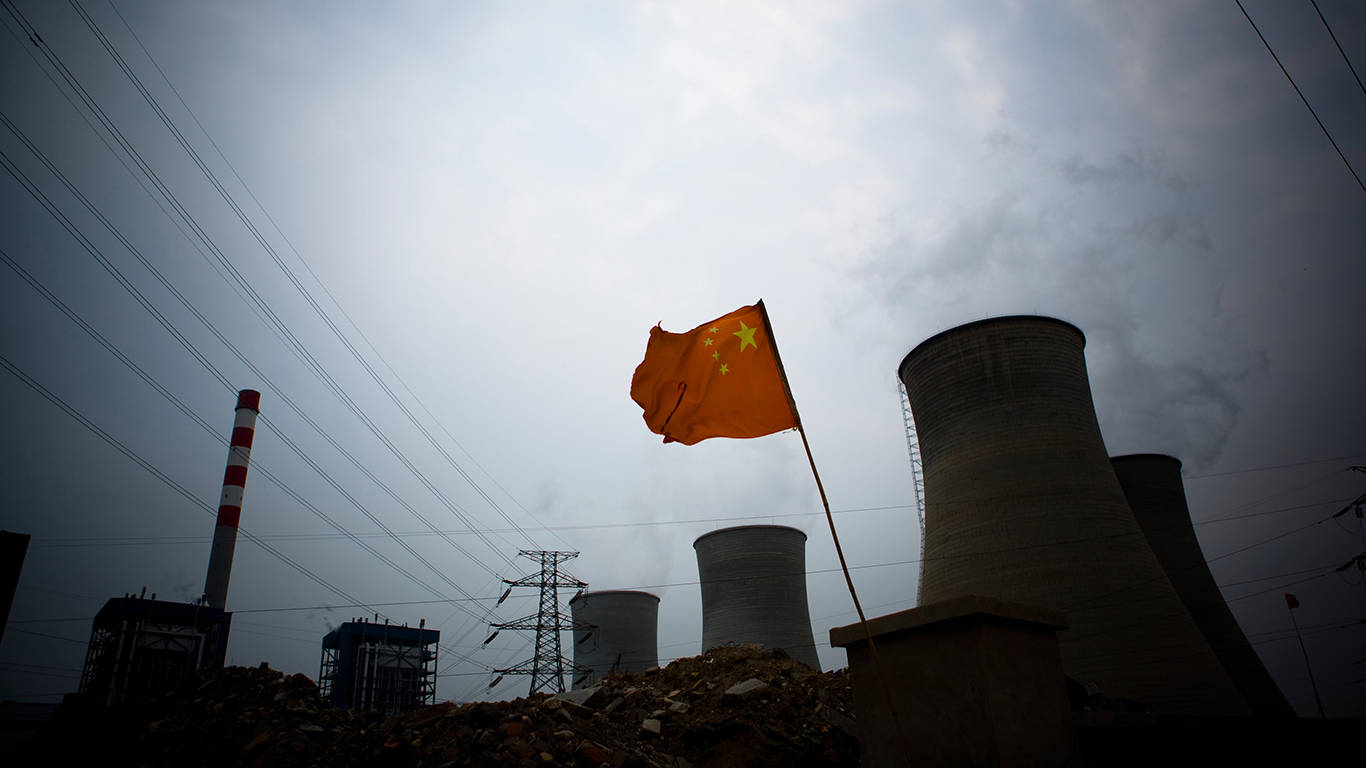CHRIS PATTEN

LONDON – The verbal emissions at the recent United Nations Climate Change Conference (COP26) in Glasgow were understandably extensive but fortunately less environmentally damaging than the energy path on which the world remains set. Governments reached a fragile agreement that still just about keeps in play the 2015 Paris climate agreement’s main target of limiting global warming to 1.5° Celsius above pre-industrial levels. But unless countries do a great deal more, and quickly, the actual temperature rise is likely to be at least a full degree higher.
The biggest disappointment in Glasgow was the last-minute watering down of the proposed (and widely supported) agreement to “phase out” the use of coal in energy production. With India providing political cover for China in vetoing this language, the final conference proposal was to “phase down” coal – an expression that has never left my lips or pen in several decades of speaking and writing English. It is entirely devoid of conviction. If an alcoholic promises to “phase down” his alcohol consumption, the result will almost certainly be trouble.
China accounts for more than half of the world’s coal consumption, and has the largest amount of coal-fired generating capacity under construction. Pressed about why his country would not do more in Glasgow to help save the planet, China’s chief negotiator pointed to the commitments in the Communist Party of China’s current Five-Year Plan.
So, our future now depends on the CPC’s program. The tragedy for the world is that the Party cannot be phased down, much less phased out, despite the fact that it is a huge threat to the future of all of us.
Chinese President Xi Jinping, who declined to attend COP26 in person, has one overriding priority: to keep the Party in power. That is why, at the very least, the CPC covered up the initial coronavirus outbreak in Wuhan in late 2019, in the process ignoring China’s international commitments to the World Health Organization. And that is why the CPC will not go further for now in reducing China’s mining, purchase, and use of coal. It fears that doing so would endanger its economic model and risk undermining living standards, potentially weakening its grip on power.
Unfortunately, China’s behavior will most likely undermine the credibility of governments in open and free societies. How can democratic governments ask citizens to make sacrifices and, in some cases, reduce their living standards in order to tackle climate change, when China blithely pumps more carbon dioxide into the atmosphere?
Likewise, how can one justify undercutting businesses in some countries by allowing Chinese exports that are produced using a type of energy that is being phased out elsewhere? China is, once again, trying to tilt the playing field and compete by its own set of rules.
It is therefore difficult for a US politician today to make the case for preventing climate change in the coal-mining communities of West Virginia. And leaders in Germany, Poland, or the United Kingdom will have a tough time attempting to tailor such an argument to similar domestic constituencies.
But democratically elected governments must still try to step up efforts to tackle climate change in order to save the environment for everyone, including the Chinese. And what will Xi’s response be? Simple: don’t do what I do, do what I say – or rather, what the CPC’s Five-Year Plan says. You must try to save our environment while we ruin yours.
Moreover, losing the fight to limit global warming to 1.5°C also may threaten democracies, because the resulting extreme weather events will further strain relations between governments and electorates. Democracy has no divine right to exist. If the strains and tensions become too much, some democracies could simply implode into chaotic populist authoritarianism.
These pressures could hardly come at a worse time. For starters, Europe faces problems all around its borders. In the Balkans, the 1995 Dayton Agreement that brought peace of a sort to Bosnia is under threat from Serb extremism. Russia’s military buildup near Ukraine and the Baltic states could again be a prelude to war. Belarus, egged on by the Kremlin, is creating a migrant crisis on its border with Poland.
Russia is using every trick it can to try to increase Europe’s dependence on Russian energy exports. Meanwhile, Germany will have its first new chancellor in 16 years, and the UK’s Brexit-era leadership seems to have lost its way in trying to find a global role for the country. Countries across Europe face rising inflation, higher energy bills, and the prospect of a cold winter as governments try to find a sustainable path out of the COVID-19 crisis.
The United States, for its part, is struggling to respond appropriately to the rise of China, whose grievance-infused nationalism raises anxieties about its threats to the Indo-Pacific region, and in particular Taiwan. In addition, America is seeing its own global standing undermined by the takeover of the Republican Party by Donald Trump’s personality cult.
So, the existential threats to the planet and to democracy are being aggravated by more traditional political and geostrategic problems around the world. It will take strong leadership to get us out of this mess in 2022. US President Joe Biden will have his work cut out for him. And who else will there be to help him?
To save the planet, robust democratic leadership must be phased up – not phased down, let alone phased out. Rather than merely keeping our fingers crossed and hoping for the best, we should start by calling out the appalling behavior of dictatorships such as China and Russia.
No comments:
Post a Comment